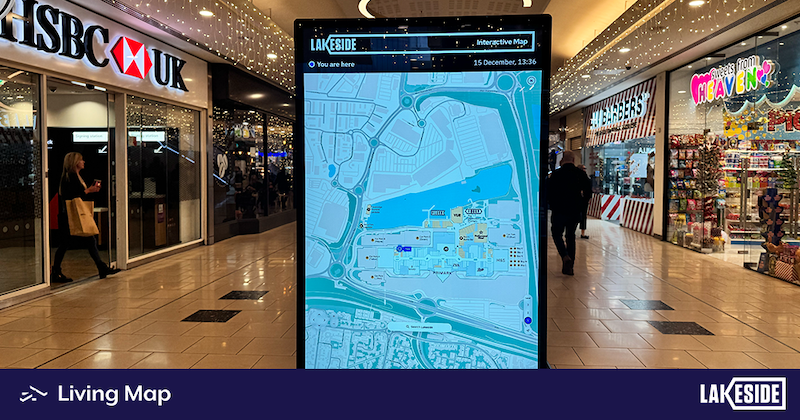Starting your own freight broker business: a step-by-step guide
The demand for freight brokerage services is on the rise. With the booming e-commerce industry and increased global trade, the logistics sector is expanding rapidly.
Entrepreneurs looking to break into the transportation industry will find that starting a freight broker business can be both rewarding and profitable. This guide is designed to walk you through the process step-by-step, making it easier to understand and execute.
In this article, you will learn about the role of a freight broker, the planning and research needed, legal requirements, business setup, technology tools, relationship building, marketing strategies, and maintaining compliance.
By the end, you'll have a comprehensive understanding of what it takes to launch a successful freight brokerage business.
Understanding the role of a freight broker
Key Responsibilities
Freight brokers play a crucial role in connecting shippers with carriers, ensuring efficient transportation of goods. They handle logistics, negotiate rates, and manage contracts. To gain a deeper insight into these responsibilities, seeking guidance from freight broker mentors can be invaluable.
These experienced professionals provide insights into best practices, market trends, and problem-solving strategies, helping new brokers navigate challenges and succeed in a competitive landscape.
Collaborating with mentors fosters both personal and business growth, ultimately enhancing the overall performance of a freight brokerage.
Benefits of Being a Freight Broker
Operating as a freight broker offers several advantages. First, it requires relatively low startup costs compared to other businesses in the transportation industry.
Second, it offers flexibility, allowing brokers to work from virtually anywhere. Lastly, it provides the opportunity to build valuable relationships within the logistics and transportation industries, which can be lucrative in the long run.
Research and planning
Identifying Your Niche
Before starting your freight broker business, it’s essential to determine your niche. Whether it’s focusing on specific industries like pharmaceuticals or high value goods, having a specialised area can set you apart from the competition.
Understanding the Market
Conducting market research is crucial. Analyse the current trends, demands, and challenges in the logistics sector. Identify potential competitors and understand their strengths and weaknesses.
This will help you carve out a space for your business and tailor your services to meet market needs.
Legal and regulatory requirements
Licensing and Insurance
To legally operate as a freight broker, you’ll need to obtain a broker authority from the Federal Motor Carrier Safety Administration (FMCSA). This involves applying for a USDOT number and an MC number.
Additionally, you’ll need a surety bond or trust fund agreement, and adequate insurance to protect your business from potential liabilities.
Compliance
Compliance with federal and state regulations is essential.
This includes maintaining detailed records of all transactions, following safety protocols, and adhering to industry standards. Staying updated with regulatory changes will ensure that your business operates smoothly and legally.
Setting up your business
Creating a Business Plan
A well-structured business plan is the foundation of any successful business.
Outline your business goals, target market, services offered, pricing strategy, and financial projections. This plan will not only guide your operations but also attract potential investors or lenders.
Securing Funding
Depending on your business model, you may need to secure funding to cover initial costs such as licensing, insurance, office setup, and technology investments.
Explore various funding options, including personal savings, bank loans, or investors.
Technology and tools
Essential Software
Leveraging the right technology is critical for efficient operations.
Investing in transportation management software (TMS) will help you manage shipments, track deliveries, and optimize routes. Other essential tools include customer relationship management (CRM) software and accounting software.
Platforms for Efficient Operations
Consider utilising freight matching platforms to connect with carriers and shippers. These platforms streamline the process of finding available loads and trucks, making your operations more efficient.
Technology and tools
By utilising a freight class calculator, you can optimise logistics and improve efficiency. For instance, accurately being able to determine freight class of varied goods is crucial for maintaining competitiveness and customer satisfaction.
Building relationships
Connecting with Shippers
Building strong relationships with shippers is vital for securing consistent business.
Network within the industry, attend trade shows, and leverage social media to connect with potential clients. Offering exceptional customer service will also help retain clients and generate referrals.
Partnering with Carriers
Equally important is establishing partnerships with reliable carriers.
Ensure that they have the necessary credentials and a good track record. A solid relationship with carriers means you can rely on them to deliver goods on time, maintaining your reputation with shippers.
Marketing your freight brokerage business
Strategies to Attract Clients
Effective marketing strategies are essential to attract clients. Utilize a mix of online and offline marketing tactics.
Create a professional website, engage in social media marketing, and consider content marketing to showcase your expertise. Networking and word-of-mouth referrals also play a significant role in attracting clients.
Leveraging Digital Marketing
Digital marketing can significantly enhance your reach. Invest in SEO to improve your website’s visibility, run targeted ads, and use email marketing to stay connected with potential and existing clients.
Maintaining compliance and quality services
Best Practices for Long-Term Success
To ensure long-term success, maintaining compliance with industry regulations is non-negotiable.
Regularly review and update your business practices to align with regulatory changes. Focus on providing high-quality services by continually assessing and improving your operations.
Continuous Learning and Adaptation
The logistics industry is constantly evolving. Stay ahead by continuously learning about industry trends, technological advancements, and regulatory updates. Adapt your business strategies accordingly to remain competitive.
Starting a freight brokerage business requires careful planning, research, and execution.
From understanding your role and legal requirements to leveraging technology and building strong relationships, each step is crucial for your success. Remember, providing exceptional service and maintaining compliance will set you on the path to long-term success.
Ready to take the next step? Explore our resources and connect with industry experts who can help you refine your business plan and strategies. By following this comprehensive guide, you'll be well equipped to launch and grow a successful freight brokerage business.
































Continue reading…